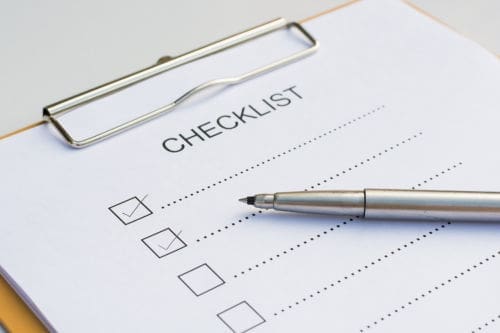Business Tax Preparation | A Checklist for Your Business

Business Tax Preparation
Business Tax Preparation | Filing for your business taxes can be a daunting task. Owners don’t like being distracted from the core business activities. Tax calculations do not come naturally aligned with many business owner’s interests. Although automation has helped many small business owners, it can’t solve all tax issues like a consultant.
Here is our guide on a checklist for your business tax preparations.
Confirm your Business Tax Due Dates
Confirming the due dates of your business taxes mean preparing yourself in advance. You shouldn’t wait for a year-end reminder. Business tax due dates can be different for many businesses depending on the legal structure. For S Corporations and Partnership entities, it is March 15 every year. For Sole Proprietors and C Corporations, it is April 15.
You’ll need to file for monthly estimated taxes as well. The year-end exercise will be calculating and consolidating your business tax returns as well. Therefore, it will be a wise option to consult a professional on your tax planning.
Gather Business Documents
Keep your business ownership and incorporation documents in order all the time. If it’s a new business you should keep in order the article of incorporation and partnership agreements.
For a continuing business, you’ll need to keep last year’s tax returns as well. Previous year’s tax returns can be a good starting point for your new tax preparations as well. You can compare key accounting figures and estimate the due taxes.
Here are a few key information points to remember:
- Federal tax ID number
- Article of incorporation
- Partnership agreements
- List of partners and ownership details
- Previous year’s tax returns
- List of offices
- Changes in partners’ shareholding
Accounting Records of Business
Your business accounting records form the basis of tax returns. Likewise, the IRS would want to know the income resources of your business. Ideally, your mentioned sources should not raise a red flag, the IRS will verify the statements independently.
For instance, keep these key accounting records in order:
- Financial statements of your business – Profit and Loss, Balance Sheet, and Cashflow Statements.
- Accounting records for your business income including:
- Sales records
- Returned inventory records
- Interest earned and tax refunds
- Other income sources
- Accounting records for your business expenses including:
- Cost of Goods Sold
- Overheads
- Insurance, utilities, payroll expenses, professional fees
- Taxes paid, tax breaks, and credits.
- Records of combined personal and business income/expenses.
Bank Statements
In short, bank statements will help you keep your business accounts in order. You can prepare the income and expense records from scratch too. If you have kept the records, do the conciliation with the help of bank statements.
Bank statements will help you identify the business income and expenses, and personal and business records as well. In other words, it will help you ratify any mistakes in the accounting records such as omissions and repetitive entries.
Also, keep a copy of your credit card statements. You would have paid many bills through business or personal credit cards. Reconcile these paid bills against the credit card statements for consistency. Furthermore, remember accounting figure mistakes can get you IRS penalties and tax audits.
Payroll Reports
Preparing the payroll reports correctly can help you a great deal at tax-filing time. If you haven’t already, start an employee contribution plan. Maintain records of employee tax filings for both State and Federal filings. For instance, you’ll deduct any employment taxes and contributions from the business tax filings. Importantly, it will help you analyze the monthly and yearly tax filings correctly.
Details of Assets
In short, business assets and changes through sale or disposal are key figures that affect your business taxes. Long-term business assets are depreciated over a long period. Moreover, you may choose a depreciation method of your liking, but it must be consistent with the accounting methods.
Prepare the key asset information including the sale or purchase of new asset. In addition, vehicle loans and market valuations are important. Keep the assets in balance and include information on the accumulated depreciation costs, remaining period, salvage value of assets, purchase or sale price, and dates of transactions.
Gather Correct Tax Forms for Your Business Tax Preparation
Your business’s legal structure and operations will decide the types of forms you need. In addition, make sure you file the correct types of forms and send the right information to the IRS.
You may need different tax forms, generally, a business will need the following types of forms:
- 1040 or 1040-SR
- 1120 or 1120-S
- 1096
- 1099-R
Learn More About Your Business Tax Preparation
Find out what your business needs to file taxes. Call Ash CPA at (617) 462-6651 or request a call online for your Business Tax Preparation.
